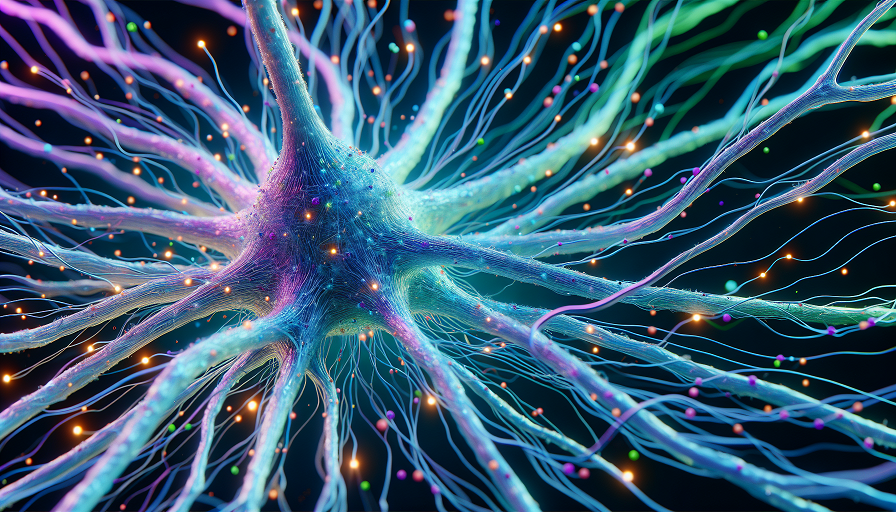
So, you’ve got a group project coming up. Maybe you’re excited, or perhaps you’re dreading it. Either way, you want to do your best and help your team succeed. As it turns out, there might be a secret weapon you’ve never thought of: nootropics. These are substances that could potentially enhance brain function and give you the extra edge you need during group work.
Contents
Understanding Nootropics: Brain Boosters
Nootropics are often referred to as “smart drugs” or cognitive enhancers. They are substances that claim to improve mental performance, especially in terms of focus, creativity, memory, and motivation. While some nootropics are synthetic, others are natural compounds found in foods and plants. Think of them as nutritional support for your brain, much like how you might take vitamins for your body.
Natural vs. Synthetic Nootropics
There are two main types of nootropics: natural and synthetic. Natural nootropics include herbs, vitamins, and amino acids that can support brain health. Examples include ginkgo biloba, omega-3 fatty acids, and even caffeine. On the other hand, synthetic nootropics are lab-made substances designed to enhance brain function. Modafinil and racetams are examples of synthetic nootropics, although they might come with side effects as they are more potent.
How Do Nootropics Work?
Nootropics work by influencing the availability of various neurotransmitters, enzymes, or hormones in the brain. They might improve the flow of oxygen to the brain or even promote the growth of new neurons by stimulating nerve growth factors. The idea is that by optimizing these processes, you’ll enhance cognitive functions like memory, learning, creativity, and focus—all crucial for succeeding in group projects.
The Benefits of Nootropics in Group Projects
Group projects require more than just individual performance; they demand teamwork, communication, and the ability to manage complex tasks. Here’s how nootropics might offer some advantages:
- Enhanced Focus: One of the primary benefits of nootropics is improved concentration. They can help you stay on task during long study sessions or brainstorming meetings.
- Better Memory: Remembering key points and details is vital in a group setting, especially for presenting ideas or recalling meeting notes. Nootropics can augment your memory retention.
- Increased Creativity: Projects often require out-of-the-box thinking. Some nootropics are known to enhance creativity, allowing you to come up with innovative solutions.
- Improved Communication: Clear communication is the backbone of any successful team project. Certain nootropics might improve social cognition, helping you articulate thoughts and understand others better.
Popular Nootropics for Students
If you’re considering trying nootropics, it’s important to choose ones that suit your needs and demonstrate a proven track record of benefits:
Caffeine
Possibly the most popular nootropic, caffeine is a well-known stimulant found in coffee, tea, and energy drinks. It sharpens focus and keeps fatigue at bay, but should be consumed in moderation to avoid jitters or sleep disturbances.
L-Theanine
Often paired with caffeine, L-Theanine is an amino acid mainly found in tea leaves. It promotes relaxation without drowsiness, counterbalancing caffeine’s stimulating effects and improving cognitive performance.
Rhodiola Rosea
This herbal nootropic is used to reduce fatigue and increase mental resilience. It’s beneficial for maintaining productivity during high-pressure projects.
Gingko Biloba
Known for enhancing memory and cognitive speed, Gingko Biloba is an ancient herbal study aid. It’s popular among students for its brain-boosting properties.
Using Nootropics Wisely
Before adding nootropics to your study routine, it’s important to do some research and consider a few key points:
- Consult Professionals: Speak to a healthcare provider, especially if you have pre-existing health conditions or are taking other medications.
- Start Small: Begin with lower doses to see how your body reacts. Gradually increase if necessary and only if you’re comfortable with the effects.
- Monitor Effects: Keep track of both positive and adverse effects. Every brain is unique, and what works for one person might not work for another.
Building Good Study Habits
While nootropics can give you a cognitive boost, they are most effective when combined with great study habits:
Consistency Is Key
Establish a consistent study schedule. Break tasks into manageable chunks and allocate specific times for group discussions and individual work.
Stay Organized
Use tools like planners, apps, or calendars to manage deadlines and track project progress. A clear plan reduces stress and increases efficiency.
Prioritize Rest and Nutrition
A healthy diet and adequate sleep are foundational to learning and memory. No nootropic can undo the effects of exhaustion or poor nutrition.
Engage in Active Learning
Engage with your study material actively by teaching others, discussing ideas, or using visual aids to enhance understanding.
Ultimately, using nootropics in group projects can be like having an extra study buddy helping you along. They are tools, not magic solutions. Combined with effort, cooperation, and good habits, they might just give you the little push you need to achieve success in your group projects.

